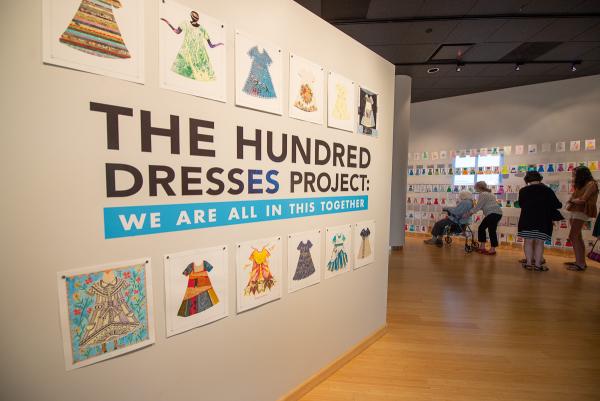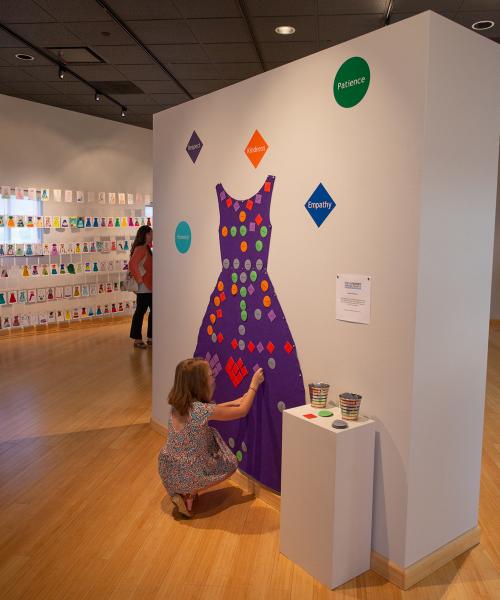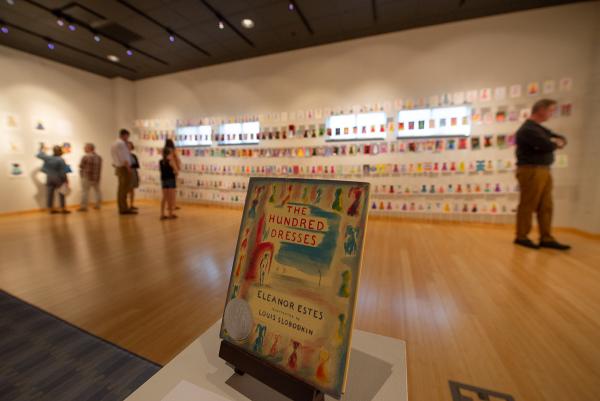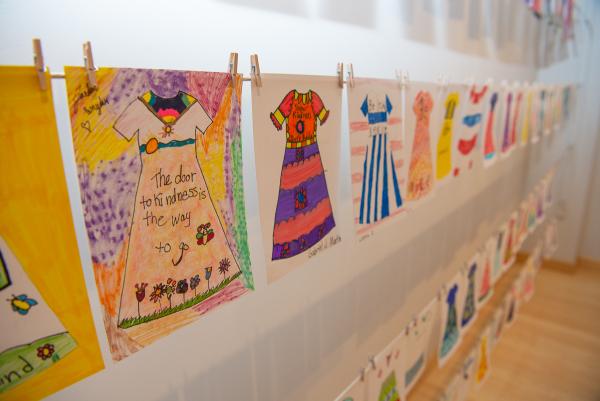The Hundred Dresses Project We Are All In This Together
Exhibit dates Hours/Calendar
Eleanor Estes’ classic children’s book, The Hundred Dresses, is the story of an immigrant schoolgirl who is teased by her classmates for her accent, name, clothes, and her family’s poverty. The book, which is still in print, was first published in 1944 and is as pertinent now as it was at that time. The book explores themes of acceptance, inclusion, art, empathy, and finding the courage to stand up for what is right. The Hundred Dresses Project was inspired by Estes’ book, and is a response to the short-sighted political rhetoric and actions that have tainted our culture, our country, and our world. The project reminds us that we must do better for the sake of all children.
Project creator and artist Crystal Cawley printed 200 yellow dresses with a letterpress gray border and label. Beginning in March of 2016, she invited people of all ages, genders, and walks of life to read the book and create a dress related to the story. Each participant got a dress print to work on and the page of guidelines. Cawley decided that, in the spirit of Estes’ story, every dress would be included, and was moved, surprised, impressed, and inspired by all of the dresses that were returned, and is grateful to everyone who participated.
Cawley is an artist who works with paper, textiles, collected objects, and re-purposed materials. Her work explores ideas of identity, time, and loss, and draws on various traditional skills like embroidery and letterpress printing. She teaches in the Continuing Studies program at the Maine College of Art in Portland, Maine, and is an artist member of Portland’s Pickwick Independent Press, a printmaking collective. She has shown her work around the US and in England, Greece, and Japan. Her work is in the collections of the Boston Public Library; Columbia University Library; The Library of Congress; Maine Women Writers Collection; MOMA/Franklin Furnace Artists’ Book Collection; the Smithsonian Institution Graphic Arts Collection at the National Museum of American History, Washington, D.C.; and the Munakata Shiko Museum, Aomori, Japan, among others. She has received grants from the Maine Arts Commission, the Berkshire Taconic Community Foundation, and the Pollock Krasner Foundation.
The Gallery at Penn College





